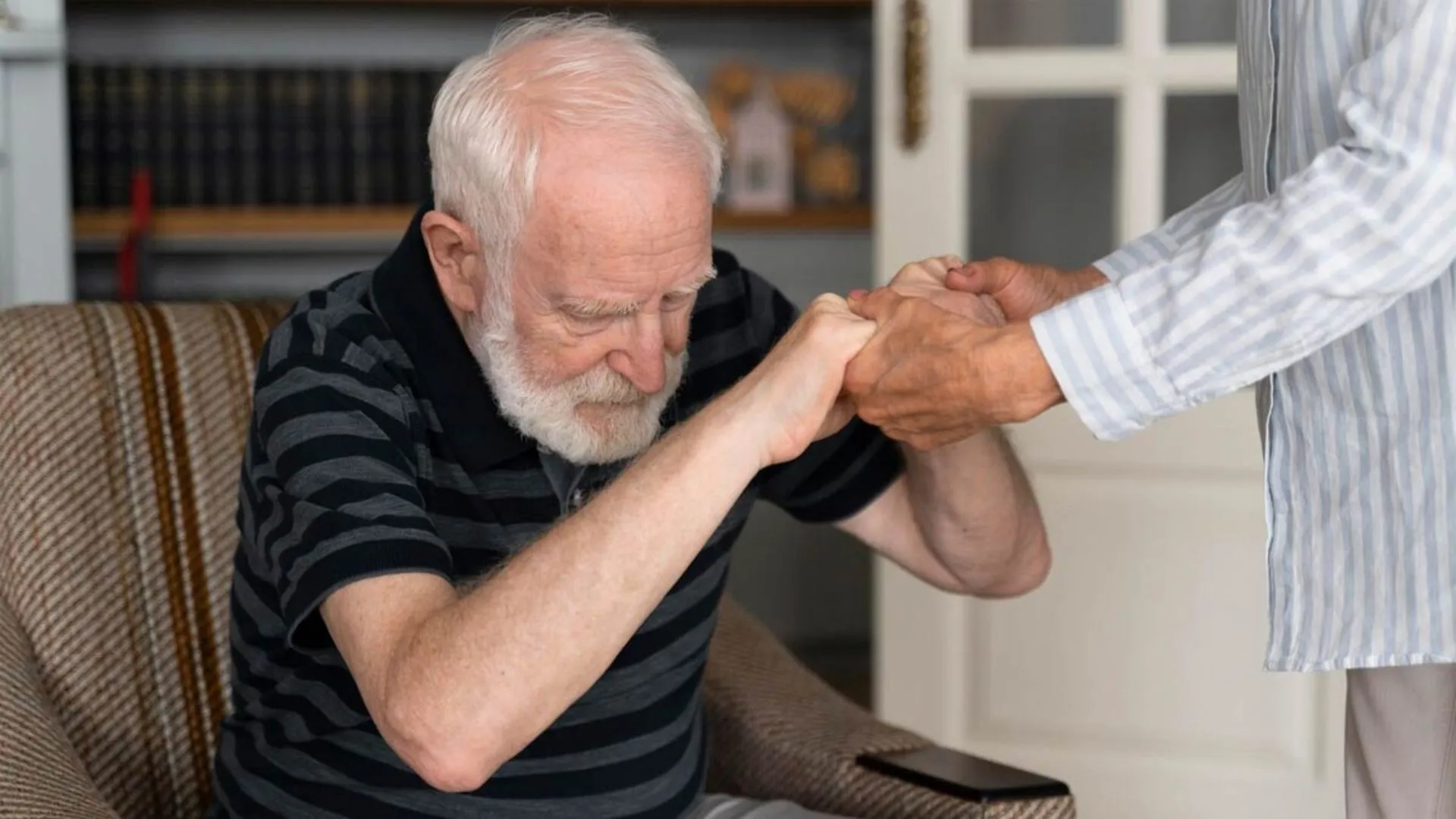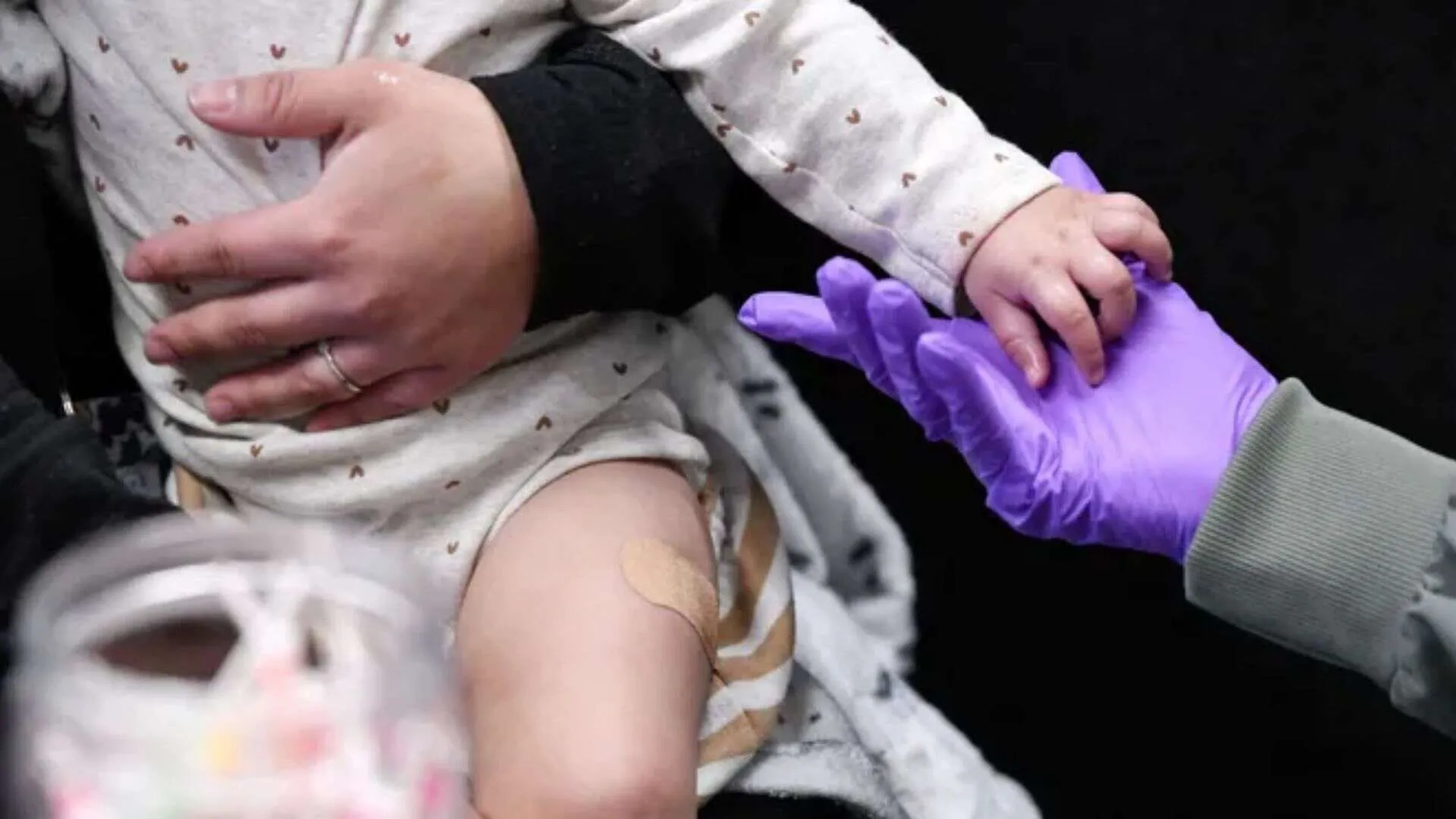The global COVID-19 vaccination campaign has been an essential tool in the fight against the pandemic, successfully protecting millions of people from severe illness and death. However, while most individuals experience only mild side effects from the vaccine, a small percentage of people have reported experiencing long-lasting symptoms. These persistent symptoms, which appear after vaccination, are collectively referred to as post-vaccination syndrome (PVS). Researchers have now begun to uncover clues as to why COVID-19 vaccines might cause chronic health issues in some individuals, opening the door to potential treatments for this condition.
Understanding Post-Vaccination Syndrome (PVS)
Post-vaccination syndrome (PVS) refers to a set of chronic symptoms that can persist for weeks or months after receiving a vaccine. Although vaccines are generally safe and have been shown to save lives, some individuals experience lingering health issues that significantly impact their daily lives. Symptoms of PVS can vary widely but typically include extreme fatigue, exercise intolerance, brain fog, insomnia, dizziness, and muscle and joint pain. These symptoms usually develop within a few days of receiving the vaccine but can worsen over time, creating a cycle of health challenges for the affected individuals.
The condition is not unique to the COVID-19 vaccine, as similar reactions have been reported after the administration of other vaccines in the past. However, with the widespread distribution of the COVID-19 vaccine, more attention has been paid to understanding the potential mechanisms behind these chronic symptoms.
Yale University researchers have recently conducted a study examining the possible causes of PVS in individuals who experienced these long-term symptoms after receiving the COVID-19 vaccine. Although the research is still in its early stages, the findings could offer valuable insights into the immune response and potential treatment options for PVS.
The Study: Key Findings on the Causes of PVS
The study, led by Dr. Akiko Iwasaki, a Sterling Professor of Immunobiology at Yale School of Medicine, analyzed blood samples from 42 participants who reported symptoms of PVS and 22 individuals who did not. The goal of the research was to uncover immunological patterns that might explain why some people experience long-lasting symptoms after vaccination.
Immune System Disruptions
The key findings of the study revealed notable differences in the immune systems of individuals with PVS. One of the most significant discoveries was that those who reported PVS symptoms had lower levels of certain types of white blood cells, specifically CD4 helper cells and CD8 cytotoxic cells. These white blood cells play critical roles in immune response and inflammation resolution. A reduction in these cells could indicate that the immune system was not functioning as effectively in resolving the inflammation caused by the vaccine, potentially contributing to the prolonged symptoms of PVS.
CD4 helper cells are crucial for orchestrating the immune response and helping other immune cells recognize and eliminate pathogens. CD8 cytotoxic cells, on the other hand, are responsible for attacking and destroying infected cells. The study found that individuals with PVS had fewer of these cells, which may be linked to their ongoing symptoms.
Reduced Antibody Levels
In addition to the decrease in white blood cell levels, researchers also observed that individuals with PVS who had never contracted COVID-19 had lower levels of antibodies against the SARS-CoV-2 spike protein. This protein is responsible for the virus’s ability to enter human cells and is the target of the immune response triggered by the COVID-19 vaccine. Individuals who had received fewer doses of the vaccine or had not previously been infected with COVID-19 had fewer antibodies in their blood, possibly leading to an inadequate immune response.
Having fewer vaccine doses and no prior COVID-19 infection may result in a weakened immune system, which can struggle to produce the necessary antibodies to fight off the virus effectively. This could leave the body vulnerable to developing chronic symptoms, including those seen in PVS.
Elevated Spike Protein Levels
One of the more intriguing findings from the study was the discovery of elevated levels of the SARS-CoV-2 spike protein in some individuals with PVS. This protein is a key part of the virus and plays an important role in the ability of the virus to infect cells. Although the spike protein is typically eliminated from the body shortly after vaccination, some individuals with PVS had persistently high levels of the protein. This could potentially explain why some individuals continue to experience symptoms, as the spike protein has been linked to an increased risk of developing long COVID, a condition in which symptoms persist long after the initial infection has cleared.
It is important to note, however, that not all individuals with PVS had detectable levels of the spike protein in their blood. This suggests that while the presence of the spike protein could be one contributing factor to the development of chronic symptoms, it is not the sole cause of PVS. More research is needed to determine whether the spike protein directly causes the chronic health issues associated with PVS or if it is simply one piece of a larger puzzle.
Potential Contributors to PVS
In addition to the findings related to the spike protein, the study also suggested several other potential contributors to PVS. These include:
- Autoimmunity: The research suggests that autoimmune reactions could play a role in the development of PVS. Autoimmunity occurs when the immune system mistakenly attacks healthy cells in the body, potentially leading to chronic inflammation and tissue damage. It is possible that the immune response triggered by the vaccine in some individuals could lead to an autoimmune reaction, which contributes to the ongoing symptoms of PVS.
- Tissue Damage: Vaccination can sometimes cause mild inflammation at the injection site or in other areas of the body. In some cases, this inflammation might be more severe or prolonged, leading to tissue damage. This could contribute to chronic symptoms such as muscle pain, joint pain, and fatigue.
- Reactivation of Epstein-Barr Virus (EBV): The study also proposed that the reactivation of the Epstein-Barr virus (EBV) could play a role in the development of PVS. EBV is a common virus that can remain dormant in the body for many years. In some individuals, vaccination or other triggers may cause the virus to reactivate, leading to symptoms such as fatigue and brain fog, which are common in PVS.
The Need for Further Research
Despite these promising initial findings, researchers emphasize that more studies are needed to fully understand PVS and its causes. Dr. Iwasaki and her colleagues stress that their research is still in its early stages, and it is crucial to validate these findings through larger, more comprehensive studies. In particular, researchers need to determine how common PVS is, how it can be diagnosed, and what treatments may be effective in managing the condition.
Dr. Harlan Krumholz, a co-senior author of the study and a professor of cardiology at Yale, highlighted the importance of approaching the issue of PVS with compassion and rigorous science. “Our responsibility as scientists and clinicians is to listen, rigorously investigate, and find ways to help,” Krumholz said. He also noted that while the vast majority of individuals experience only mild side effects from the COVID-19 vaccine, it is essential to acknowledge that vaccine-related adverse events can occur, and these cases should be taken seriously.
Dr. Marc Siegel, a clinical professor of medicine at NYU Langone Health, further emphasized the need for continued research to better understand PVS. He pointed out that understanding how the immune system functions in these individuals is key to finding effective treatments. Additionally, Siegel stressed the importance of finding ways to predict who may be more susceptible to prolonged vaccine side effects and how to manage these cases effectively.
Hope for Treatment and Solutions
The discovery of potential immunological patterns in individuals with post-vaccination syndrome (PVS) offers hope for those experiencing chronic health issues following COVID-19 vaccination. While the research is still in its early stages, the findings provide crucial insights into the immune system’s role in PVS and suggest that the condition may be linked to immune system disruptions, including autoimmunity, reduced antibody levels, and persistent spike protein levels.
As researchers continue to investigate the causes of PVS, there is hope that diagnostic tools and treatments can be developed to help individuals suffering from these prolonged symptoms. The ongoing efforts to understand PVS underscore the importance of approaching medical challenges with scientific rigor, compassion, and an open mind. With further research, it may be possible to provide effective solutions for those affected by PVS and to minimize the risk of chronic health issues following vaccination.























